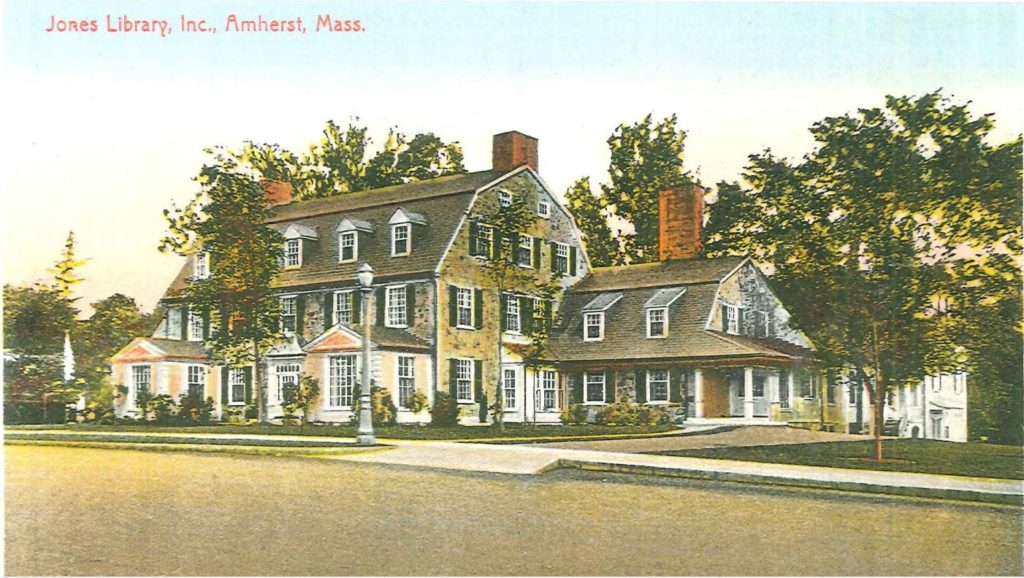Opinion: Jones Library Cuts Will Come at High Cost

Photo: amherstma.gov
The following column originally appeared in the Daily Hampshire Gazette on June 11, 2024.
When I voted to support the Jones Library expansion project in December 2023, I was assured there was high confidence in the $46 million total estimate and that trustees would be able to close the $7 million gap that remained to pay for their share of total costs.
I was wrong on both counts. The sole bid in April, just four months later, came in $6.5 million higher than promised and fundraising slowed rather than accelerated.
Now, alarmingly, the trustees are contemplating cuts in key elements of the original expansion project design that would substantially degrade the building. The cuts include using materials that have shorter life spans and are more maintenance intensive; decreasing the building’s energy efficiency; and shifting costs for planned water and sewer upgrades to the town.
Changes contemplated would eliminate solar panels, not replace single-pane glass in windows with double- or triple-pane glass, remove and throw away the carved wood paneling in the historic part of the building, and shift from durable and low-maintenance brick to an exterior that will need to be painted. The proposed asphalt substitute for slate-like roofing would have a life expectancy of just 15 to maybe 30 years compared to 100 or more for the slate.
What’s worse, this would undermine the capacity to add solar panels later insofar as the roof would have an insufficient life expectancy to justify installing solar.
In 1993, the trustees made last-minute cuts to the addition that undermined the architect’s design, leading to an addition that has been plagued with problems ever since. We should learn from the lessons of the past rather than repeat the mistakes.
At $46 million or more, we should expect a library built for the future, with long-lasting materials, low maintenance, well-insulated windows, and solar to offset electrical costs. Without such elements the annual operating costs of the library will be higher, and taxpayers will pay more to keep the library open and for repairs.
Whatever taxpayers thought about the proposed expansion to more than 60,000 square feet, the changes under consideration will mean that the building is not what they voted on.
With the Massachusetts Library Commission decision to grant an extension to rebid the project in the fall, it is important that taxpayers, especially those supporting the project, voice their concerns about the proposed changes that undermine the building’s integrity and will lead to higher costs for the town.
The time to voice concerns is now. The designer has asked for a contract next week for an additional $800,000 to make cuts and changes to the original design and the requisite bidding documents. These last-minute, hasty changes in response to the construction bid will come at a high cost to all of us.
When I ran for election to the Town Council in 2018, I committed to be financially accountable and scrutinize budgets and proposed project costs. The Elementary School Building Committee, which I chair, has insisted that any changes seeking to reduce construction costs at the same time preserve the building’s durability, its ease of maintenance, and its energy efficiency.
We should expect no less of the Jones Library trustees, who are entrusted to preserve a valuable building and a cherished resource. It is time the trustees honored and earned that trust.
Cathy Schoen, a longtime resident of Amherst, has served on the Town Council since its inception and also chairs the Elementary School Building and Joint Capital Planning committees. This column represent her views and not those of the Town Council.

Cathy neglects to mention that Jones Library contributes roughly 4% of the endowment annually toward their operating budget. What is the impact be on the taxpayer if the endowment income can’t support this share? Secondly, will a structure large enough to support “the program” for which MBLC r gives the grant money require more personnel and how will that impact the taxpayer?
Will the town/library need to return the federal funds already received if the proposal eliminates historic preservation? Federal and State law require adherence to National (preservation) Standards when taxpayer money is being used.
I also ask whether the Rain Garden is required by law to keep the effluent from the larger roof area on site? Is it being eliminated in the proposed plan that eliminates landscaping? How do we pay for that?
To Cathy:
Brava! Well said with many sincere thanks.
Molly Turner
Former Jones Library Trustee and President
Earlier this week, I cited this Stanford Law Review article
https://review.law.stanford.edu/wp-content/uploads/sites/3/2018/02/70-Stan.-L.-Rev.-565.pdf
which may address whether the actions of library trustees (and municipal officials enabling their actions) may rise to a breach of fiduciary duty to the town’s taxpaying residents; and also, what sort of legal sanctions may fall upon them individually and corporately.